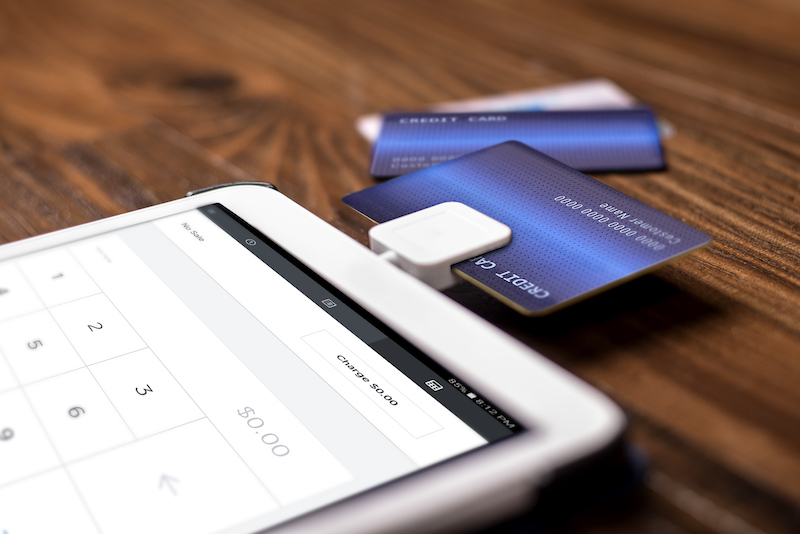
Proposed D.C. legislation highlights debate over businesses that refuse cash payments.
Plastic, not cash, is king.
At least this rings true for some retailers who increasingly view cash as a relic of the past and have stopped accepting cash as a form of payment. Now some legislators want to prevent businesses from going “cashless.”
Councilmembers in Washington, D.C. have recently proposed legislation that would prevent businesses, specifically food establishments, from refusing to accept cash. Last year, a similar measure prohibiting cashless policies failed to gain traction in Chicago. Currently, only the state of Massachusetts requires that retail establishments accept cash, although the state reportedly does not enforce the law. No federal law prohibits private businesses from denying cash transactions.
Washington, D.C. Councilmember David Grosso has argued that refusing physical currency is tantamount to discrimination. “By denying patrons the ability to use cash as a form of payment, businesses are effectively telling lower-income and young patrons that they are not welcome,” Grosso reportedly said. “Practices like this further stratify our diverse city when we should be working to foster greater inclusion.”
Specifically, minors, low-income patrons, the homeless, and people who live in the United States without documentation may not have access to debit or credit cards. Data from the Federal Deposit Insurance Corporation show that low-income individuals and minorities disproportionately constitute households that do not have a bank account or rely heavily on alternative financing options. In the District, approximately 10 percent of households are “unbanked”—they do not have a bank account. Additionally, approximately 25 percent of households are classified as “underbanked”—they may have a bank account, but mostly rely on alternative financing options. Across America, surveys show similar statistics, with seven percent of households unbanked and approximately 20 percent of households underbanked.
“Any kind of a movement towards a cashless society would have a direct impact on both communities of color and low- and moderate-income residents,” Joseph Leitmann-Santa Cruz, associate director at Capital Area Asset Builders, has reportedly argued.
Yet, opponents of the proposed legislation in Washington, D.C. point out that although many newer businesses refuse cash, such as Uber and Amazon, legislators do not seem to classify the actions of those companies as discriminatory. But Washington, D.C. Councilmember Gross reportedly responds that food at physical establishments should be available to all. Basic services such as these should be inclusionary.
The larger debate, however, extends beyond the food industry to all establishments that could refuse cash. Supporters of the cashless movement contend that managing cash is inefficient. Time spent on handling physical currency could be allocated to serving other customers and completing other responsibilities.
In addition, managing cash has hidden costs. Retailers devote much time and work to take, process, monitor, and deposit cash. Among other things, managing cash requires armored vehicles or employees to transport the money to the bank. Tempted employees may pocket the cash.
On the other hand, accepting card payments, less susceptible to petty theft, costs businesses between two percent to three percent of each transaction.
Opponents of the proposed legislation also claim that refusing the physical currency increases employee safety and deters robberies. One District restauranteur who recently switched to cashless payment methods reported that robbers targeted his business four times in the span of one year.
But the cashless movement also may come at a cost to customers—even those with bank accounts. Cashless businesses erase anonymity and privacy, challengers of the movement argue. Companies track the purchases consumers make with physical cards and digital applications. Using debit and credit cards, as well as digital applications, as a form of payment exposes consumers to cybersecurity breaches—for instance when hackers famously stole credit and debit card data from Target, a massive breach that impacted 40 million customers during the holiday season.
Furthermore, depending on card and mobile payments could cause problems in times of technological failures. Without the proper technology, for example if hackers targeted the network of computers necessary to make cashless payments or if there is a power outage, card and mobile payments would be deemed useless.
The cashless debate has also focused on smaller issues of contention. Proponents of the cashless movement state that cash is unclean. In one small study conducted at a store, researchers found that 87 percent of bills they collected contained enough bacteria to cause an infection in those with a compromised immune system.
Other points of the debate focus on intangible ideals, such as freedom and patriotism. “By attempting to reduce payment choice in the U.S., Visa is paving the way towards a Big Brother society of surveillance in which human freedom is gradually eroded by powerful interests intent on diminishing privacy and free choice,” ATM Industry Association Chief Executive Michael Lee reportedly said, referencing a campaign from Visa to increase cashless businesses. And other opponents of cash-only businesses simply state that refusing the greenback is unpatriotic, especially when each bill includes the phrase “legal tender for all debts, public and private.”
The Washington, D.C. City Council is currently reviewing the legislation.



